- Home
- Peter Grainger
Time and Tide: A DC Smith Investigation
Time and Tide: A DC Smith Investigation Read online
Change is afoot at Kings Lake Central police station. A most unexpected new detective inspector takes up his post this Monday morning, and the oldest detective in the place takes a momentous decision. Around them, other officers are considering their own situations, and even the building itself seems to be facing an uncertain future. But life and death go on, nevertheless, and by lunchtime someone will make a grim discovery on the Norfolk saltmarshes. A stranger seems to have suffered a slow and agonising death out there. As the team from Kings Lake uncover his story, they reveal another, much older one with its origins far back in the previous century. In the tide that governs the affairs of men, it seems, love and loss, betrayal and revenge are timeless themes.
Chapter One
Almost imperceptible, that moment – the turning of the tide. It is as if the sea has exhaled and ceased its breathing, and beyond the exhalation, of course, one finds peace. That morning, after the night of the full moon, the sky was clear and cloudless. The sun rose quickly into the golden-green dawn, and the sea out far beyond the saltmarsh was suddenly a sea of rippling light. Somewhere the bubbling call of a curlew, somewhere the plaintive notes of a solitary redshank, and then the water began to edge its way back into the lonely creeks of the north-Norfolk marshes.
It flowed in first amongst the eel-grasses, the glassworts and samphires, and then it slowly climbed the creek-sides, covering the roots of marsh grasses, sea-purslane and sea-lavender. Here the sea-water is life and death – too little and the marsh-plants shrivel, too much and they drown. They thrive only on the in-between, the place that is neither land nor water but a mysterious hybrid child of them both – mysterious, strange and beautiful.
The man who had lain in the marsh all night, in a tiny nameless creek not far from the winding channel that leads into the harbour at Barnham Staithe, felt not the mystery or the strangeness of the place, and his eyes, though open, could see none of its beauty. Eventually the water took him by the hand and lifted him, his fingers waving through the eel-grass as he continued his journey into the heart of the marsh, his head lolling to one side, or perhaps nodding, as if with death a little understanding had come at last.
It’s been a good summer after all, thought Sam Cole, as he watched the queue forming on the jetty down by the Lady Anne. June had been wet and windy, and as usual all the boatmen had said all the usual things – that it would be the worst season ever, that this was the beginning of the end of their business. But a good August, a long, hot August, had saved them as it had before – his father always said that, if August is alright you’ll not starve before January. The takings in August had been enough to see them through past Christmas, and now, if this September weather holds to the end of the month, they’d survive until the next season.
High water was at eight minutes past twelve in the afternoon – ten minutes to go. Sam Cole ate the last piece of battered fish and the last three chips from the polystyrene tray and watched his niece Janie working her way along the queue, taking the money from those who had turned up on spec, and checking the tickets of those who had bought the seal-trip in advance. He smiled – she always looks the part, Janie, all sun-browned and pony-tailed, blue and white striped T shirt and sailor’s cap; she even puts on her best Norfolk drawl sometimes. Not one of those people would guess the truth – she’s in her final year of university, going to be a pharmacist. Barnham Staithe doesn’t need many of those, though, so she’ll be gone for good soon. Makes you wonder who will be running the boats in a few years’ time, what with all the best youngsters leaving.
As he walked down, Sam Cole eyed the line of people. A few children but no toddlers or babies, thank God. Three dogs but they already seemed to be getting on with each other – a few years ago a full-on dogfight broke out on the twenty two foot dory and there aren’t a lot of places you can go to get out of the way of that. A couple of buckets of sea-water had done the job, and the threat to drown the bloody things if it happened again. Sam Cole took the old-fashioned view that on a boat the captain’s word is law, and because he was a big man with a beard, a man who didn’t say anything he didn’t have to, few of his passengers doubted that it was so.
Janie Cole cast off the Lady Anne at fourteen minutes past twelve o’clock and took her usual seat in the bows. Sam took the tiller, standing whilst the people sat in forward-facing rows. Cameras were clicking away already, though there was little to see as yet, and there was that sense of adventure and expectation which always comes as a boat leaves its mooring and heads for the sea. Not just for them, the holiday-makers, but for Sam too, though he had been doing this man and boy for almost fifty years. Seen everything in that time, of course, but you still feel it because it’s in our blood, island nation and all that. Sam Cole believed in blood.
He took a breath and caught Janie’s eye. She was watching him, smiling and waiting for him to begin.
‘Good afternoon, ladies and gentlemen, and welcome to Cole’s Seal Adventures. My name is Sam, and that’s Janie, the first mate. I’m going to tell you a bit about what we’re going to see this afternoon but you can ask either of us a question at any time. We’re a bit local but hopefully you will be able to understand what we say when we answer. Out on the sandbanks, we’re going to see two kinds of seal…’
The girl was twelve or thirteen, it’s difficult to say these days. She hadn’t taken any interest in the seals or the Sandwich terns or Sam Cole’s brief lecture on the effects of longshore drift. Janie watched her now as the boat began its journey back to Barnham, and thought, she hasn’t spoken once to her parents, didn’t want to come on a stupid boat-trip to see some stupid seals. The parents, come to that, had hardly spoken to each other – a sad, silent couple in their early forties, both bespectacled and bookish-looking, wondering what had happened to their lives… Janie had seen enough of that already – not a mistake that she intended to make.
When Sam pointed out the rusting hulk of the amphibious craft that soldiers had used to practise the D-day landings – or so the story went, no-one ever questioned it – all eyes but the girl’s went in that direction. She was leaning over the side a little way so that she could trail her hand in the water; against the rules of course but it didn’t look as if she would be getting any other enjoyment out of the day, so Janie left her in peace and watched the tourists take pictures of the DUKW and its customary cormorant.
But when Janie looked back, everything had changed. The girl was sitting bolt upright, her hand out in front of her, fingers dripping sea-water, and she was pointing. She looked at Janie then with a mute appeal, and Janie followed the pointing finger. There was something, just, in the widening wash from the Lady Anne, something that bobbed briefly, seemed to roll a little in the turbulence and then disappeared.
Janie nodded and said, ‘A seal. One often follows the boat back in.’
The girl was shaking her head, her face pale and wide-eyed.
‘What did you think it was?’
The girl wouldn’t answer – and then Janie realised that she couldn’t. Neither of the parents had yet noticed. Janie left her perch on the bow and crossed the six or seven feet to where the girl was sitting. She hunched down beside her and said, ‘It’s OK. What did you see?’
Still the words wouldn’t come easily. The girl opened her mouth and pointed again down the estuary, as if only seeing would make anyone believe what she had to say. Now the mother was leaning over, saying what’s the matter, is she feeling sick, and the girl was holding onto Janie’s arm, as if she was.
Finally, she said, ‘It was a man. A dead body. A man.’
Sam Cole had cut the engine to an idle. He said quietly to Janie, ‘It’s a hig
h tide. We’ve enough water for another trip if we’re back in by two thirty…’
‘I think she saw something, uncle.’
‘Did you, though?’
‘Yes – something. I can’t be sure what. I told her it was a seal but I don’t think it was.’
‘What’s the mother saying?’
‘She says her daughter wouldn’t make it up.’
‘That’s what all mothers say until the daughters do. Sod it!’
The story had begun to circulate among the passengers, and two or three, the girl’s father included, were watching Sam Cole as if they understood the dilemma. The ebb wasn’t up to its full speed yet but in another half an hour or so it would be; anything in the water then would travel fast and this spring tide would take it out of the estuary and into the open sea. If he didn’t make at least one search and then they got back to hear that someone was missing…
‘Alright – I’ll come about. You get back to it and keep things calm. And get on the radio, tell Tommy what’s happening. Tell him to be ready to get down to Arthur’s and borrow his launch – not that we’re going to find anything.’
And then, to the passengers, ‘A slight detour, ladies and gentlemen. We’re just going to run back down to the corner and come over this bit of water again. You can help me out by keeping your eyes open for anything in the water that shouldn’t be there – some to the port, some to the starboard.’
There were nods and knowing glances, then, and some looked positively interested in the whole business. A seal is a seal is a seal – but a dead body? Cole’s Seal Adventures was suddenly excellent value for money.
One careful look would be enough to say he had made the effort, even if it was, in reality, no more than a gesture. Sam Cole knew the local waters as well as any man. He took the Lady Anne down to the corner as he called it, and then pulled around to come back along a line between the edge of the marsh and their original course; a sizeable object would likely drift into the slacker water until it reached the point where the two widest, deepest channels met. There the pace of the ebb quickened so much that he would need at least half throttle just to maintain the boat’s position, and the chance of finding anything floating would be virtually nil.
The girl sat with her mother’s arm around her shoulders and stared into the foot-well – she didn’t want to look at the water, and Janie Cole thought that whatever she had seen had truly frightened her. Most of the others seemed to be enjoying the bonus of a free trip, and she saw one character surreptitiously take a picture of the girl with an expensive-looking camera; she stared at him until he noticed her, and she kept on staring until he looked away. Some people really are bastards, she thought.
‘What’s that?’
The woman was the oldest person on the boat – a grandmother with her daughter and two young boys. She was pointing in towards the bank where a raft of the creamy scum and froth that accumulates with every tide had gathered. From her seated position, Janie could make out nothing but her uncle was standing at the tiller, and when she saw his face she knew.
The elderly woman gave a little shriek and then silenced herself for the sake of her grandchildren – she reached out with her arms and gathered them in, trying to shield them from the way life sometimes ends, as if one can do such a thing.
‘Janie?’
Sam beckoned to his niece, and when she was close he said, ‘Call Tommy. We need Arthur’s launch and a couple of men out here now.’
She was already working on the radio handset as he spoke.
She said, ‘What are we going to do in the meantime?’
‘Got no choice, have I? Can’t just stand by until they get here – this water will move in ten minutes. It already is, look. And I can’t pull the poor sod on board with all these people. We’ll just have to hold onto it until they get here.’
There was a long-handled boat-hook stowed under the starboard side. Sam Cole held it aloft and there was a gasp from someone who imagined the boat was about to return with one more passenger than it had when they departed.
He said, ‘Take the tiller and keep us as steady as you can, girl. It’s going to be a long quarter of an hour.’
Sam Cole went towards the bows then, and the people shrank away from him a little. He braced himself across the boat, and when Janie had manoeuvred the Lady Anne into position, he hooked the pole into the man’s clothing at the first attempt. Thank God, thought Sam, he’s face down.
There was silence then – even the screeching of the terns had died away. Sam continued to stare grimly at his catch until he heard the click of a camera’s shutter. When he looked up he saw the same man who had photographed the girl, inching forward to get another shot.
‘You press that button one more time, sir, and your camera is going to find itself in the drink. Whether or not it’s still around your scrawny neck is a matter of complete indifference to me.’
The man moved away and sat down. More seconds passed, and the note from the engine rose a little as Janie Cole held the Lady Anne’s position. Sam looked at her and nodded.
Fifty years, man and boy. He thought he’d seen everything…
The boat rocked a little in the swell, and the sun was shining. It was a lovely early September afternoon. After a little more of it had passed by, Sam Cole said, because there was no need to hide anything any more, ‘And Janie? Call the police.’
Chapter Two
Just a piece of plastic now – gone were the days when it would have been a brass plate screwed to a wooden door – but Alison Reeve stopped again and looked at the new plaque outside her new office. Detective Chief Inspector Alison Reeve. Finally.
Detective Superintendent Allen must have organised the plaque. He was good at the minutiae, to the point of being a little obsessive about it. If the job had gone to an outsider, that was something they would have had to come to terms with but Reeve knew him of old, and as she stood there, she reminded herself that it was important to maintain a positive working relationship with her new boss who was actually her old boss. It was important not to be influenced by certain members of the teams below her who were inclined to view the detective superintendent with amused contempt. She would not fall into that trap. The DCI vacancy at Kings Lake Central had been unfilled for a long time; now that it was hers, Alison Reeve was determined that it would be seen as a successful appointment from the very beginning.
But the envelope was there on her desk, just as Smith had said it would be, propped up against her favourite mug so that when one sat down, as she did now, it was directly in view, unavoidably the most significant thing on the table.
He had joked about it, of course, said that he wanted to be one of the very first people to write to her using her new, full, official title, and sure enough there it was written centrally on the envelope in his small, neat, grammar schoolboy’s hand. Reeve picked it up and examined it more closely, as if it was the initial piece of evidence in a new investigation. Or perhaps it was the final piece of evidence in a long-running one… Nevertheless, just as she had expected, the ink was from a fountain pen, a solid black ink, and the envelope itself was watermarked, not a cheap one, not one from the Kings Lake Central stationery cupboard. Smith had written this at home, up in that spare bedroom that had been his private office for as long as she had known him.
With the envelope in her left hand, she picked up the little, silver sword-shaped letter opener in her right. If she brought the two items together, the thing would be done, somehow. But the intimacy of that knowledge troubled her – she had been in that private office where few others who knew him had been, she had seen his books, files and folders, had held in her hand one of the Alwych notebooks that contained his personal record of every case that he had ever been a part of… She had been his apprentice, his protégé.
And now it had come to this. Just an envelope and a single sheet of paper that also would be watermarked, dated and signed. In more ways than one, as Smith himself might put it, this was
his resignation.
She had put it down unopened. The envelope felt like the first crisis in her new role, and it was entirely typical and absolutely predictable that it would involve Smith. As soon as he had told her what he intended to do, she had warned herself not to feel responsible, not to be to blame for it. People move on, people climb ladders – he knew that, had done it all himself. They don’t all voluntarily jump onto the head of the longest snake on the board, true, but Smith understood how things work in the force as well as anyone.
So, Reeve told herself again, this is not my fault. There was always going to be a new detective inspector, and it was always possible that it would be someone from outside. It’s just unfortunate that it happens to be someone who…
Go on, she told herself – face up to it. It happens to be someone who only last year had sent for Smith and interviewed him at length as a person of interest in a murder investigation. Of all the people… There had been at least five applicants interviewed for the post but Simon Terek was the one that Superintendent Allen had pushed for from the very start. And you had to wonder, as Smith himself must have done, whether this was Allen’s revenge.
DCI Reeve switched on her laptop. The envelope was still in view, so she placed it in the in-tray – a nice, shiny, metal-mesh thing that, no doubt, Superintendent Allen had chosen for her from the office supplies catalogue – and logged in to her brand-new account as a senior manager. When this was sorted, and she already had the dates of three meetings to put onto the calendar, she would open that envelope and set in motion the retirement of the station’s most effective detective. She smiled at the phrase as she busied herself on-screen – effective detective. He would love that. She could use it at his leaving do.
She managed to ignore the letter for almost an hour, and by then it was the middle of the afternoon. Her first day in her new post and nothing dreadful had happened – in fact, nothing much had happened at all. She had attended DI Terek’s briefing first thing, more to welcome him rather than for any operational reason, and then after a few minutes she had left him to get on with it. The violence at three of Lake’s most notorious pubs last weekend now looked more spontaneous than premeditated – Smith himself had said it was the result of the unseasonably hot weather and too much spicy food – but tidying it up was a suitable first job for a new detective inspector. His presence, however, had enabled her to complete her checking of the evidence files in the Mark Randall case – the only complication there being that Brother Jeremy from the community at Abbeyfields was continuing to insist that he be charged with something alongside the strange and unworldly Brother Andrew. Trying to find a suitable charge because the arrested person really wants one isn’t an everyday problem but she had found what she thought was a worthy compromise – conspiracy to conceal evidence likely to lead to the conviction of another should keep the barristers amused for half an hour, even though Brother Jeremy would plead guilty to kidnapping Shergar at the drop of a hat.

 Persons of Interest
Persons of Interest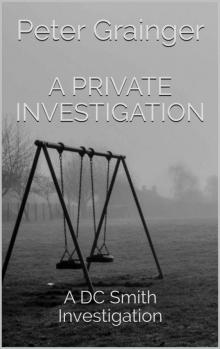 A Private Investigation
A Private Investigation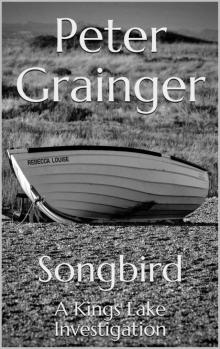 Songbird
Songbird On Eden Street
On Eden Street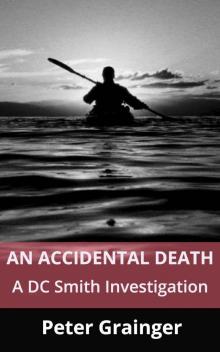 An Accidental Death
An Accidental Death Time and Tide
Time and Tide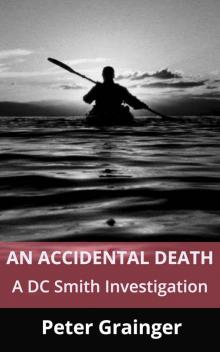 An Accidental Death: A DC Smith Investigation
An Accidental Death: A DC Smith Investigation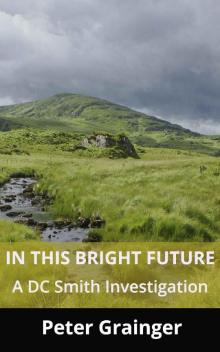 In This Bright Future
In This Bright Future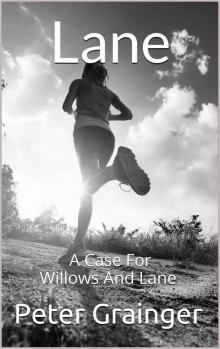 Lane: A Case For Willows And Lane
Lane: A Case For Willows And Lane The Rags of Time: A DC Smith Investigation
The Rags of Time: A DC Smith Investigation Luck and Judgement
Luck and Judgement Persons of Interest: A DC Smith Investigation
Persons of Interest: A DC Smith Investigation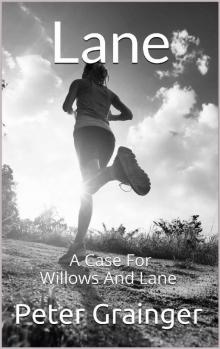 Lane
Lane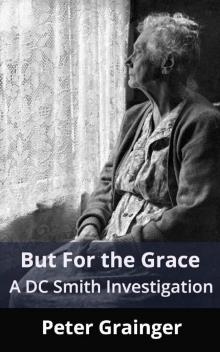 But For The Grace
But For The Grace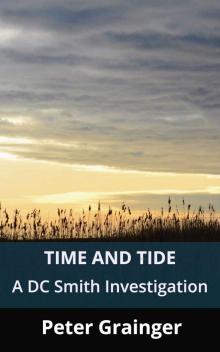 Time and Tide: A DC Smith Investigation
Time and Tide: A DC Smith Investigation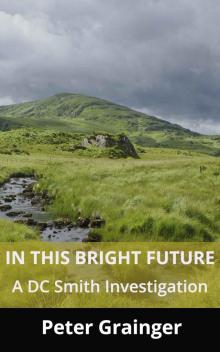 In This Bright Future: A DC Smith Investigation
In This Bright Future: A DC Smith Investigation The Rags of Time
The Rags of Time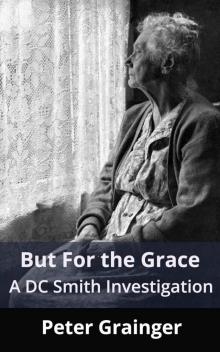 But For The Grace: A DC Smith Investigation
But For The Grace: A DC Smith Investigation Luck and Judgement: A DC Smith Investigation
Luck and Judgement: A DC Smith Investigation